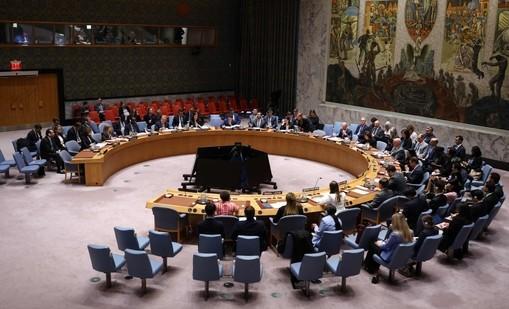
Was LeT involved? UNSC asks Pak on J&K attack, refuses to accept ‘false flag’ claim
The United Nations Security Council (UNSC) has refused to accept Pakistan’s “false flag” narrative on the recent Pahalgam attack in Jammu and Kashmir, and instead, questioned whether the terror outfit Lashkar-e-Taiba (LeT) was involved in the attack. The development came to light during a closed-door meeting requested by Pakistan, where UNSC members grilled the country on the issue.
The Pahalgam attack, which took place on October 11, saw a group of unidentified assailants open fire on a group of tourists, resulting in the death of a Pakistani national and injuries to several others. Pakistan had claimed that the attack was a “false flag” operation carried out by Indian forces to tarnish its image, but the UNSC members were not convinced by this narrative.
According to reports, some UNSC members specifically questioned whether LeT, a Pakistan-based terrorist outfit, was likely to be involved in the attack. The outfit has a history of carrying out terrorist attacks in India, including the 2008 Mumbai attacks that killed over 160 people.
The meeting was called by Pakistan at the request of its Permanent Representative to the UN, Munir Akram. However, sources close to the development said that Pakistan’s narrative on the attack was not accepted by the majority of the UNSC members.
One of the key concerns raised by the UNSC members was the targeting of tourists on the basis of their religion. The Pahalgam attack was widely condemned by the international community, with many expressing concern over the safety of tourists traveling to Jammu and Kashmir.
The UNSC meeting follows a series of attacks in Jammu and Kashmir, which have resulted in the deaths of several civilians and security personnel. The attacks have been attributed to terrorist outfits such as LeT and Jaish-e-Mohammed, both of which are based in Pakistan.
Pakistan has long been accused of supporting these terrorist outfits, and the UNSC meeting may have been an attempt by the country to deflect attention from its alleged role in these attacks. However, the refusal of the UNSC members to accept Pakistan’s narrative suggests that the international community is not convinced by its claims.
The Pahalgam attack has also raised concerns over the safety of tourists traveling to Jammu and Kashmir. The state has been a popular tourist destination, with many visitors drawn to its natural beauty and cultural heritage. However, the recent attacks have raised questions over the security situation in the region.
In recent years, Jammu and Kashmir has seen a surge in terrorist attacks, which have resulted in the deaths of several civilians and security personnel. The attacks have been attributed to terrorist outfits such as LeT and Jaish-e-Mohammed, both of which are based in Pakistan.
The UNSC meeting is a significant development in the wake of the Pahalgam attack, and it remains to be seen how Pakistan responds to the concerns raised by the international community. The country has long been accused of supporting terrorist outfits, and its refusal to accept responsibility for the attacks has led to tensions with India.
In conclusion, the UNSC meeting has refused to accept Pakistan’s “false flag” narrative on the Pahalgam attack, and instead, questioned whether LeT was involved in the attack. The development highlights the concerns over the safety of tourists traveling to Jammu and Kashmir and the need for Pakistan to take concrete action against terrorist outfits operating from its soil.



